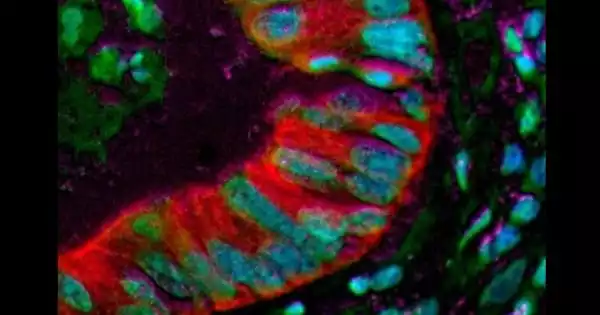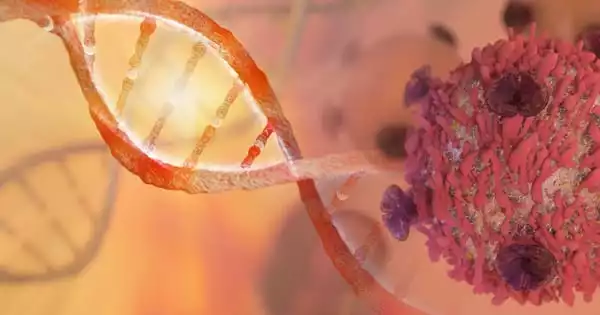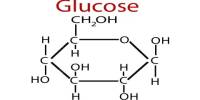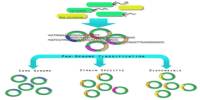Genes direct how your cells function by producing proteins. Proteins perform specific functions and serve as messengers for the cell. Each gene must contain the proper instructions for producing its protein. This enables the protein to carry out its intended function for the cell. All cancers begin with the mutation of one or more genes in a cell. A mutation is a type of change. It results in the formation of an abnormal protein. It may also prevent the formation of a protein. A normal protein provides information that an abnormal protein does not. This can cause cancerous cells to multiply uncontrollably.
The most commonly mutated gene in cancer patients is p53, also known as TP53. More than half of all cancers are caused by a missing or damaged p53 gene. The majority of p53 gene mutations are acquired. Germline p53 mutations are uncommon, but patients who have them are at a higher risk of developing a variety of cancers.
Cancer researchers have been using DNA sequencing technology to identify gene mutations that cause various types of cancer for the past fifteen years. Computational scientists have now combined gene mutation data with cancer prevalence data to reveal the genetic basis of cancer in the entire cancer patient population in the United States. The study reveals how frequently each gene in the genome is mutated in cancer patients. The findings may help to direct genetic research in order to develop more effective treatments than are currently available.
Cancer researchers have been using DNA sequencing technology to identify the gene mutations that cause the different forms of cancer. Now, scientists have combined gene mutation information with cancer prevalence data to reveal the genetic basis of cancer.
Stites’ team
The study, published in Nature Communications, reveals how frequently each gene in the genome is mutated in cancer patients. The findings may help to direct genetic research in order to develop more effective treatments than are currently available.
“The paper answers a very basic question: what are the most frequently mutated genes in human cancer?” says Stites, who is also a physician and the Hearst Foundation Developmental Chair holder. “This question, to my surprise, had not been answered.”
Genetic mutations play a critical role in the development and progression of cancers. They can also be specifically targeted for effective treatment. However, while many studies have identified the mutations involved in specific cancers, such as breast cancer or lymphoma, no one has ever been able to combine the data in such a way that it can reveal which mutations are most common in the entire cancer patient population. Every cancer is unique, making it difficult to determine which cancer-causing genes and drug targets should be prioritized for further research.

Stites’ team combined data sets from genomics and epidemiological cancer studies in the new study to determine what percentage of all cancer patients will have a mutated gene. Although the task appeared simple at first, they quickly discovered why the question had not been answered before: genomic and epidemiological studies do not use a standardized naming system for cancers. Some researchers, for example, classified cancers by body location, while others classified them by tumor type, and many used a combination of the two. This made it difficult to align the data sets, which was necessary for determining the prevalence of the various mutations.
To overcome the challenge, the scientists meticulously reviewed and reclassified each cancer using a consistent naming system after carefully analyzing over 200 studies. The data sets were then compared, taking into account the fact that some cancers are more common than others. They discovered that some widely held beliefs were incorrect after analyzing the data. For example, KRAS is a cancer-promoting gene that was previously thought to be mutated in 25% of all cancers; however, it was discovered to be involved in only about 11% of all cancers. Individual genetic mutations were discovered to be less common than previously thought, as part of a trend.
“These findings point to the need for people to reconsider where they have been focusing their time, attention, and resources,” says Stites. “We should be balancing research efforts more evenly across the different genetic causes of cancer, and we should be balancing the development of new cancer treatments more evenly across the different major treatment strategies because targeting specific mutations will have less impact than has been assumed.”
Gaurav Mendiratta, Meraj Aziz, David Liarakos, and Melinda Tong of Salk, as well as Eugene Ke of the University of Virginia, contributed to the study. The Pioneer Fund, the National Institutes of Health, and the Melanoma Research Alliance all provided funding for the study.
















